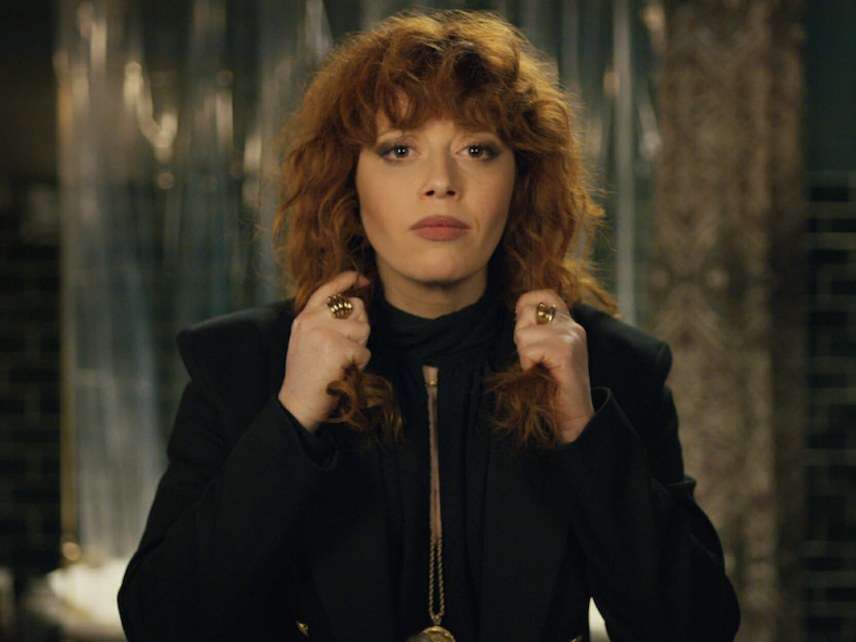Time-Looping Russian Doll a Quirky Ode Self-Discovery
A Groundhog Day with bite

Russian Doll. Available now on Netflix.
Hip, wisecracking and restlessly bored, Nadia slips out of the bathroom at her 36th birthday party for a booty call. Wham! She's hit by a taxi and the vision in her lifeless eyes fades to black—and then pops back into focus at that same bathroom mirror. Wow. What was in that joint? Better head home for bed, this time alone. Wham! She gets knocked into a river and drowns, only to show up at the mirror again. What the hell? An even swifter exit that ends in a neck-breaking fall down the stairs. Wham! And… .
Well, you get it. We're in a Groundhog Day-style time loop. Nadia is going to keep falling down sewers, getting smashed to pieces in car crashes, and freezing to death in homeless campsites until … well, until what? That's not at all clear. "The universe is trying to fuck with me," deduces Nadia. "And I refuse to engage."
That proves to be far more difficult than she expects in the wild, weird, and witty Russian Doll, a thoroughly nutball comedy created and mostly written by Amy Poehler, Bachelorette producer-writer Leslye Headland and star Natasha Lyonne, best known as the merrily promiscuous inmate Nicky Nichols in Orange Is The New Black.
Nadia, Lyonne's character in Russian Doll, is a video-game designer rather than an imprisoned junkie. But below the surface, Nadia is not entirely dissimilar to Nicky: flinty and funny. She's not too discriminating when it comes to sex partners. "I thought you were a sick fuck," she deadpans to one partner who launches a post-coital discussion of cat gender. "But now I see you're pretty deep."
She's vaguely troubled by some ancient discontent with her long-dead mother and laden with the normal misgivings about her approach to the precipice of middle age.
"Having fun is for suckers," she tells the host of her birthday party. "Staring down the barrel of my own mortality always beats fun." That quickly goes double, triple, and quadruple as she begins the endless march through faux-death experiences.
Russian Doll's Groundhog Days parameters are obvious enough. (There's also a whiff of After Hours, Martin Scorsese's 1985 urban-shaggy-dog film.) But as the name implies, there's an unseen complexity to Russian Doll.
Did Nadia get dosed with some bad dope at her party? What's in an "Israeli-style joint," anyway? Is her still-smitten ex somehow jerking her around? Or is this the work of a footloose spirit in the apartment building, a former yeshiva, where her party is being held? Investigating that last one results in her first real clue. "Buildings aren't haunted," a rabbi tells her. "People are."
Russian Doll will doubtless be invested with deep feminist undertones by a lot of critics, and certainly some are present, if only by the fact that its lead character is a 36-year-old single career woman. But Nadia is too quirky to be anybody's icon, too prickly to march under a sisterhood-is-powerful banner, and too funny to be a reliable exponent of any "-ism."
Russian Doll is not a manifesto but the travel diary of a nutball journey to self-discovery in which a woman finds multiple versions of herself, like the nesting dolls of the title. Some are bold and brassy; some gruff and gross; some tender and vulnerable. You'll like some of them better than others, but in Russian Doll, they all fit together in one irresistible package.


Show Comments (13)